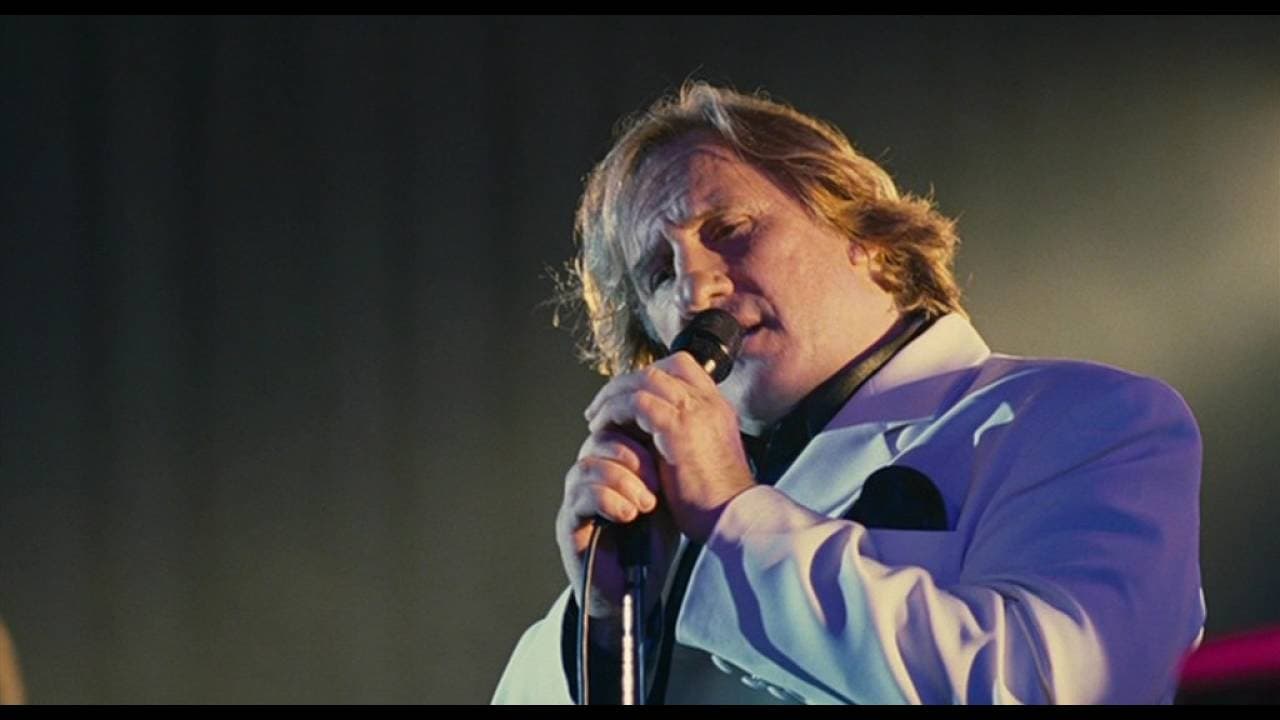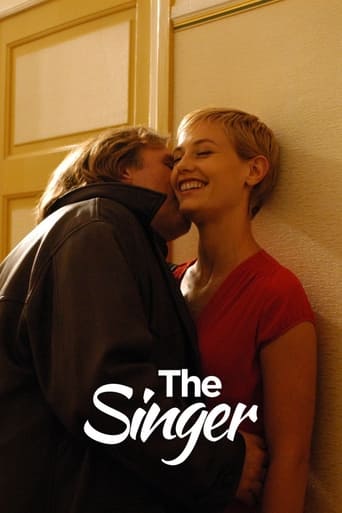

We watched this lovely film on TV last night and both of us enjoyed it tremendously. I judge films by how memorable they are; even good films that are appreciated at the time disappear in my, admittedly, porous memory but this film for some reason cemented itself in my memory immediately. I admit that I enjoy films about male/female relations or the lack thereof if that is the case; the French are the planet's masters of this examination of the human condition and they do it very well. The Singer is an examination of that most sensitive of times in relationships: the period of discovery, before people understand what is happening to them, whether there is enough glue to hold this tentative relationship together. I thought that the director knew exactly what he wanted his actors to do and their professionalism allowed them to play these most sensitive of roles so well. As you can imagine there are no huge points of realization or transcendence in this beautifully played out examination: nothing that we have been led to expect from Hollywood, just quiet, introspective searching and waiting to see if the puzzle pieces fall into place as the singer hopes they will. As you can see, the movie is an examination of these two people very tentatively feeling each other out to see if they have a future. The viewer's joy is watching this endearing and gentle examination. I found the movie a tremendous viewing experience but very tentative, very gentle and very knowing.
... View MoreThe middle-age tacky singer of romantic songs Alain Moreau (Gérard Depardieu) is singing with his orchestra in the Royat Casino. When he meets the younger real-state agent Marion (Cécile De France) in the show with his friend Bruno (Mathieu Amalric), they have one night stand and Marion leaves the room without saying goodbye to him. Alain has a crush on Marion and seeks her out in her office telling that he wants to buy a house. Alain finds that she has a son and the distant Marion gets closer to Alain but the unrequited love drags him down."Quand j'Étais Chanteur" is a weird and messy romance. Gérard Depardieu and his character Alain Moreau are totally out of the league of the gorgeous Cécile De France and they do not have any chemistry along the whole story. The tacky songs of the movie are recommended for very specific audiences where I do not include myself; therefore, it is hard and boring to see Gérard Depardieu singing those songs. The footage of Stromboli (1950) is totally out of the context and last but not the least, the resemblance of Cécile De France with Patricia Arquette is amazing. My vote is five.Title (Brazil): "Quando Estou Amando" ("When I am in Love")
... View MoreAfter seeing the trailer I didn't expect to enjoy this movie. Lesson: don't judge a movie by its trailer.Although it is a fairly corny affair, the setting is an unusual one, the performances and production values are high, and the script unexpectedly funny.However, without a star of considerable magnitude the entire soufflé would fall flat. Fortunately the great Depardieu is on hand, his giant presence matched by his lightness of touch. It's curious how the old American lions - de Niro, Pacino and the others - don't seem to be able to both play their image while sending it up at the same time: they only manage one thing or the other. In this modest movie, Depardieu is both himself and something of a parody of himself. The result is two-for-the-price-of-one enjoyment.The songs he sings - very well - are all genuine French pop songs which themselves border on self-parody, in the way that so many country-and western songs do - a seam of humour richly mined by Altman in Nashville. There's nothing so subtle here: Quand J'Etais Chanteur is so loosely woven that close scrutiny would unravel it. But for all that, it's surprisingly enjoyable.
... View MoreI saw this film this afternoon at the London Fim Festival and loved it. You clearly got a sense of a singer in the twilight of his career observing either younger singers much better than understanding the needs of the audience than himself, or realising that his companions from years ago have done much better than he has.I sometimes felt that we were watching two stories, one about the Singer and another about the younger woman. Each had baggage, both were drawn to each other in ways they did not expect.go see this if you get the chance, and stay and watch the credits to find a few extras thrown in.
... View More